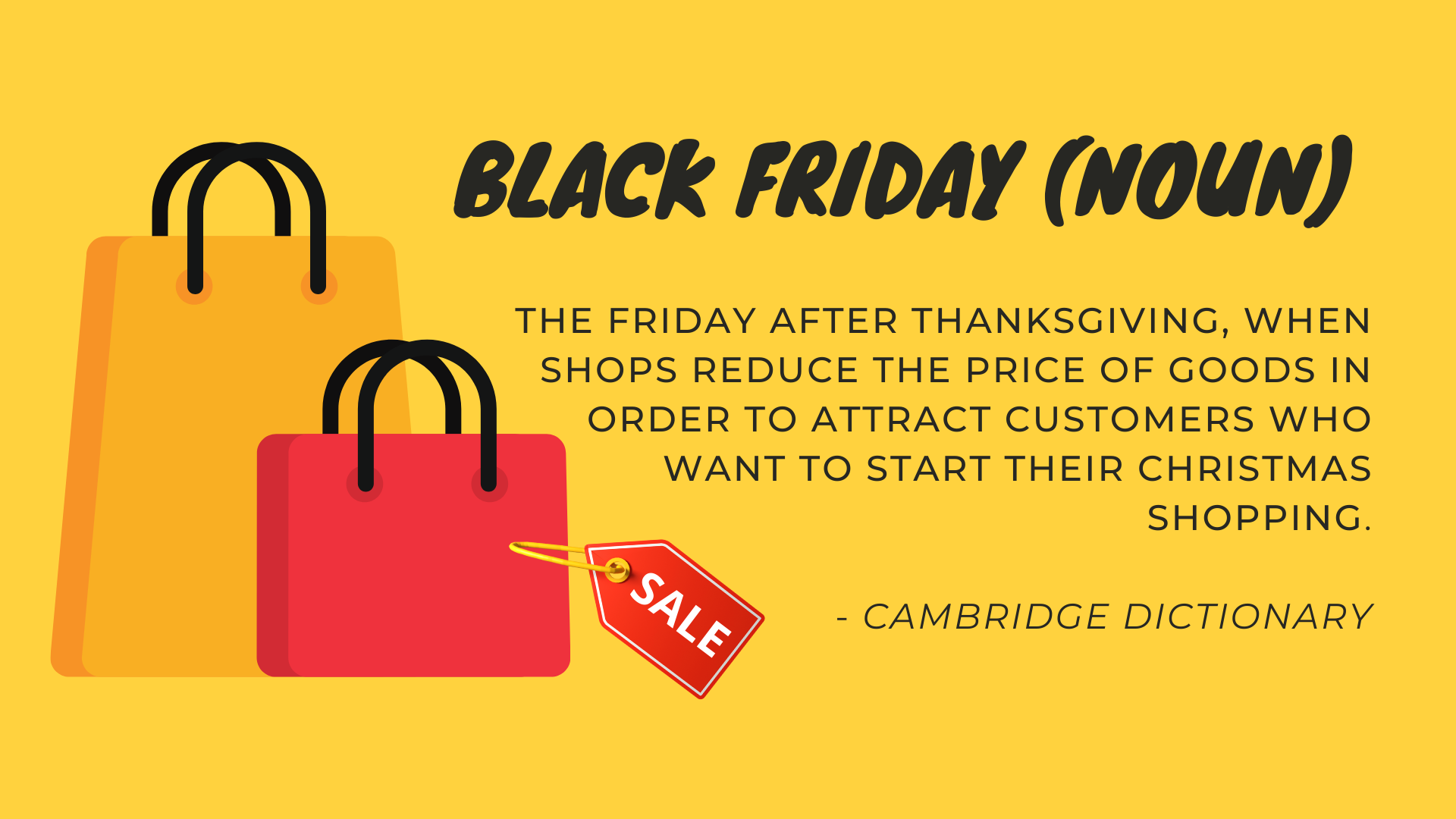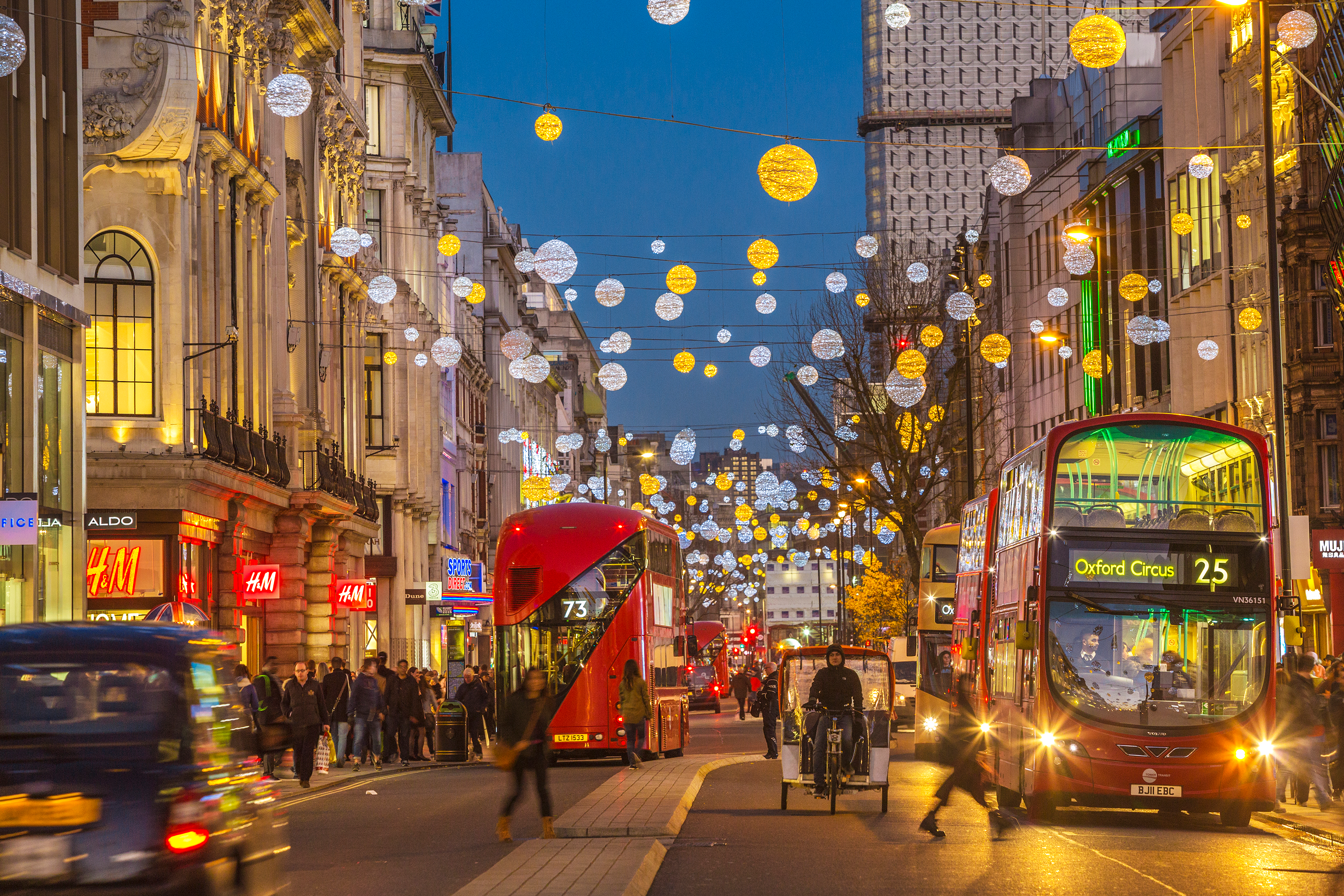
If you’re wondering about the origin of Black Friday then don’t worry, you’re definitely not the only one.
Black Friday 2022 is just around the corner and there's plenty of reasons to get excited about it. With multiple Black Friday Nutribullet deals and Best Black Friday Kitchenaid deals - there's a real opportunity to gadget up your Kitchen in time for the annual Turkey dinner. Plus there's the huge promise of discounts on this year's top Christmas toys and some Black Friday perfume deals that will have your Christmas shopping all wrapped up early. A good idea considering the current cost of living crisis.
Taking place just once a year it's known for giving us some irresistible bargains from big-name retailers. But many will be surprised to learn that this wasn't always the case. From the brothers on Wall Street who lost everything, to the police in Philadelphia, and the stores that we know and love today, this is where the phrase ‘Black Friday’ actually comes from.
What is the origin of Black Friday?
In 1869, two financiers on Wall Street called Jim Fisk and Jay Gould bought a huge amount of gold in the hope of the value soaring dramatically. They were then planning on selling it for a huge profit but before they could, the gold market crashed in the US and the men lost it all. The fateful event was called ‘Black Friday’ as at the time, catastrophic days were referred to as ‘black’.
It wasn’t until the 1950s that the phrase was used in relation to shopping. So this is when the origin of Black Friday really started. November 27, Black Friday, come in the days following the American holiday of Thanksgiving. In Philadelphia, huge crowds of shoppers and shop-lifters, tourists and pretty much every other type of person used to come into the city on this day for the Army-Navy football game. The crowds would create absolute chaos and because of it, all police officers had to work for long hours that day to try and control the hoards of people.

They used the phrase ‘Black Friday’ to refer to this difficult day. But it was bad for advertising for the city, so some tried to change it to ‘Big Friday’. Not quite as catchy, we have to admit.
By the end of 1980s, all across America, ‘Black Friday’ was commonly used to refer to the sales (and masses of people who went to them) that took place around November 27 after the Thanksgiving holiday. This is also because it refers to retailers, who profited greatly over that one weekend, having profits or otherwise being "in the black". This phrase comes from how accountants used black ink to denote profits in their books, as opposed to red ink which was used to record losses.
How did Black Friday come to the UK?
The American shopping giant Amazon is the Black Friday origin story for the UK. They first brought Black Friday to the UK in 2010, when they promoted a selection of discounts to their customers for just one day. And today the online retailer continues to dominate the day with their Black Friday coffee machine deals, plus hundreds of other offers on everything from electronics to baby gear to food and more.
Three years ago, American-owned supermarket Asda then followed suit. And this is really how the UK got Black Friday ready - kicking off the tradition as we know it today. This one really got the ball rolling as the chaos came to Asda’s aisles, with customers fighting in each other for televisions and discounted gadgets. Since then, almost every big-name store in the country offers some deals for the Black Friday weekend right up into Cyber Monday.
Cyber Monday, you ask? The two have a bit of rivalry in the retail world, with customers constantly thinking Black Friday vs. Cyber Monday - which is better? It turns out, there's more difference than you might think.

Do other countries have Black Friday?
You've probably seen the scenes from America during Black Friday. When customers are pushing at the doors to get them open, launching themselves into the aisles to secure absolutely phenomenal deals on products for upcoming holidays. But it's not just the US that loves a bargain. As in France, Germany, Romania, India and Brazil, Black Friday is also a long-awaited day in the retail calendar. They call it the same thing and similar traditions occur, coming from the same origin of Black Friday, with electronics and clothes at the focus of the discounts.
But elsewhere in the world, while the idea might be the same, what they call 'Black Friday' is very different. In Mexico, "El Buen Fin" (translated to "the good end) is their day of sales and in the United Arab Emirates, it's actually called "White Friday" instead. China also offers deals on one special day of the year - Singles' Day! On November 11, the anti-Valentines' Day celebration kicks off with the world's largest 24-hour shopping extravaganza.
Why does it feel like Black Friday gets longer every year?
If it's starting to feel like Black Friday is actually the longest day of the year, then you'd be right - since most of the deals start weeks before the weekend and continue for long afterwards.
Last year, high-street pharmacy Boots notably extended their offers for the whole month of November. During the lockdown, the retailer saw an unprecedented demand for their items and many customers were stuck waiting in online queues for hours. To compensate for this, Boots extended their Black Friday, so that shoppers could secure themselves those priceless in-store deals. But we're yet to hear if the same thing will take place for Black Friday 2021.
And of course the sales don't stop on that fateful Friday! The first Monday after Black Friday is called Cyber Monday and sees hundreds more deals flood the websites. In the last few years, the two days have battled it out and shoppers have debated whether Black Friday or Cyber Monday was better for discounts. But with deals spreading out across the holiday season, these are the two days to head for if you're looking for some of the best deals for Christmas shopping or the holiday season.
Amazon, however, is particularly famous for having seemingly never-ending deals. The online retailer likes to get the ball rolling with early savings on Le Creuset and unmissable Black Friday blender deals.
So those looking for holiday bargains have four days in the space of two months where they can make their money go further.
What kind of discounts can you get?
All that chaos happens for a reason it seems, when you take a look at some of the incredible deals that are offered every Black Friday and in the weeks leading up to it.
The Argos Black Friday sale is famous for have major reductions on tech. Think Apple iPads, Google Nests, GoPros and Samsung televisions. While others offer tempting bargains on beautiful homeware, womenswear, menswear and kids' stuff.
We're also expecting reductions on specific brands like Disney from the likes of Smyth's, The Entertainer and very.co.uk. Whereas other retail sales offer great discounts on sportswear and equipment. Ideal if you're looking for a winter coat to wrap up in while you wait on the sidelines or a new pair of trainers to hit the gym with.

Shoppers go for these sales because more often than not, especially on those big-ticket items, you can get at least 20 per cent off if not up to 70 per cent, as we've seen in previous years.
Did you know these interesting facts about the origin of Black Friday?
Now we know all about the origin of Black Friday, check out these interesting facts about the big day...
- In the gold market crash, US President Zachary Taylor's brother was financially ruined.
- The Philadelphia Police department were the first ones to coin the term 'Black Friday'.
- Black Friday is not the busiest shopping day of the year - that's the Saturday before Christmas.
- Black Friday sales have only ever declined in one year - the 2008 recession.
- Americans are twice as likely to take part in Black Friday than people in the UK.
- An astonishing £21 billion is estimated to be spent on presents and celebrations for Christmas 2021. (source: pwc.com)
- In 2021 - for the third year running - men are expected to spend more during the Black Friday and Cyber Monday weekend compared to women. (source: finder.com)
- 46% of Londoners said they would be participating in Black Friday 2021. This makes them the biggest predicted spending region, followed by the West Midlands (38%) and the East of England (32%)
- In 2019, customers spent an average of £97 on Black Friday - above the monthly average of £76 (source: awin.com).
- The UK also broke European shopping records in 2019 for having the most spending during Black Friday - around £8.57 billion was spent.
- In 2018, clothing was the most-purchased product in the Black Friday sales. Closely following behind was gadgets, electronics, computer games and books.
- In 2017, customers planned to shop the most at Amazon during Black Friday. The second most popular was Argos, followed by Currys PC World and Boots.
With the origin of Black Friday in mind, we're getting more and more excited for the big weekend!







